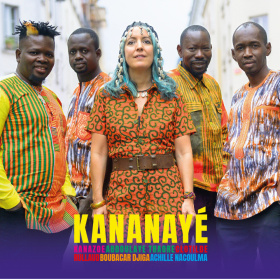Africa’s music economy: From beats to boom
By Martin Hiller
Africa’s music industry is booming — creatively, commercially, and globally. From TikTok to stadium tours, Afrobeats to amapiano, the continent’s sound has gone from local rhythm to global pulse, captivating audiences and reshaping pop culture. But behind the rise of Burna Boy, Tems, Rema, and other global chart-toppers, lies a broader cultural transformation.
 Muziki Africa panel discussion at FAME Week Africa 2023.
Muziki Africa panel discussion at FAME Week Africa 2023.
Streaming has played a defining role in propelling Afrobeats into the global spotlight, establishing it firmly as a leading force in contemporary music. Services like Spotify, Apple Music, and Boomplay have not only introduced African artists to global audiences but also given African artists more control over distribution and data. According to Spotify, global streams of Afrobeats grew by 550% between 2017 and 2023. And it’s not just fans in Lagos or Johannesburg hitting play — in fact, countries like the US and the UK now stream Afrobeats more than Nigeria does.
Social media platforms have amplified this reach even further. TikTok, YouTube, and Instagram are investing in African creators and giving musicians unprecedented access to audiences. South African singer Zee Nxumalo recently told Rolling Stone that TikTok helped her break through global markets: “Even though most of my songs are in isiZulu, fans around the world connect with them through dance challenges.” That combination — sonic authenticity and algorithmic reach — is giving young African artists a shot at global careers from their bedrooms.
But for all the growth, there are still structural gaps holding the industry back. Revenue models are erratic and licensing systems across the continent remain underdeveloped. Piracy is rife and many artists struggle to collect royalties or monetise their music effectively. A 2023 Economist report noted that while African music is becoming a global commodity, the economic benefits are not always returning to the continent. Investment in concert infrastructure, stronger IP protection, and music business education is urgently needed to close this gap.
The South African Performance Rights Association (SAMPRA) will be facilitating a number of panels and discussions at the forthcoming FAME Week Africa’s Muziki Africa Programme, a music industry gathering at the intersection of film, fashion and culture. There they will explore some of these issues including monetisation and licensing.
Key to discussions such as these is the evolution of an evolving creative economy and the direct benefits for artists in particular. Nigeria’s creative industries — driven largely by music and film — are now the country’s second-largest employer after agriculture, responsible for 4.2 million jobs. In Kenya, a Creative Industries Bill was passed in 2023 to stimulate growth through infrastructure, marketing, and financing. South Africa’s Cultural and Creative Industries Masterplan was drafted with a focus on building sustainable ecosystems, while private sector players like MultiChoice and Spotify have launched local initiatives to support emerging talent.
Still, access to capital remains tepid. While international investors have shown enthusiasm for tech-adjacent creative ventures — like the $6-million raised by Kenya’s Kukua for its children’s entertainment brand Super Sema — funding for live music venues, tour circuits, and artist development remains concentrated in a few hubs.
This imbalance is both a challenge and an opportunity. As Africa’s young, digital-first audience continues to grow, the demand for homegrown music — and the infrastructure to support it — will only increase. The solution lies in a unified approach that includes governments, streaming platforms, rights protectors and investors working together to unlock this value chain.
Viral moments may spark attention, but it’s economic infrastructure that sustains careers. A healthy creative sector depends on strong foundations—finance, skills, systems—that allow African culture to flourish and evolve.
To attend the Muziki Africa conference, visit www.fameweekafrica.com.
Martin Hiller is the portfolio director at FAME Week in South Africa. Hiller writes in his personal capacity. The opinions and views expressed herein are solely his own and do not reflect the position or stance of the publication.






















Commentaires
s'identifier or register to post comments